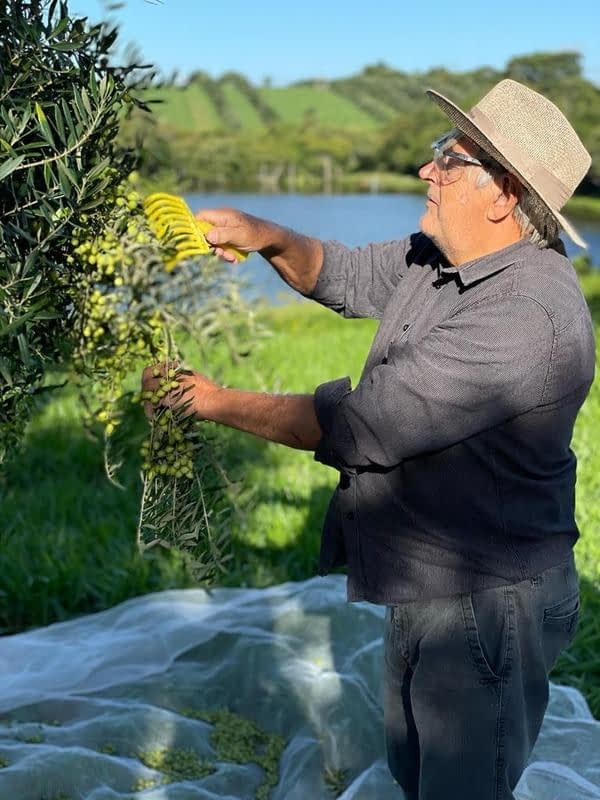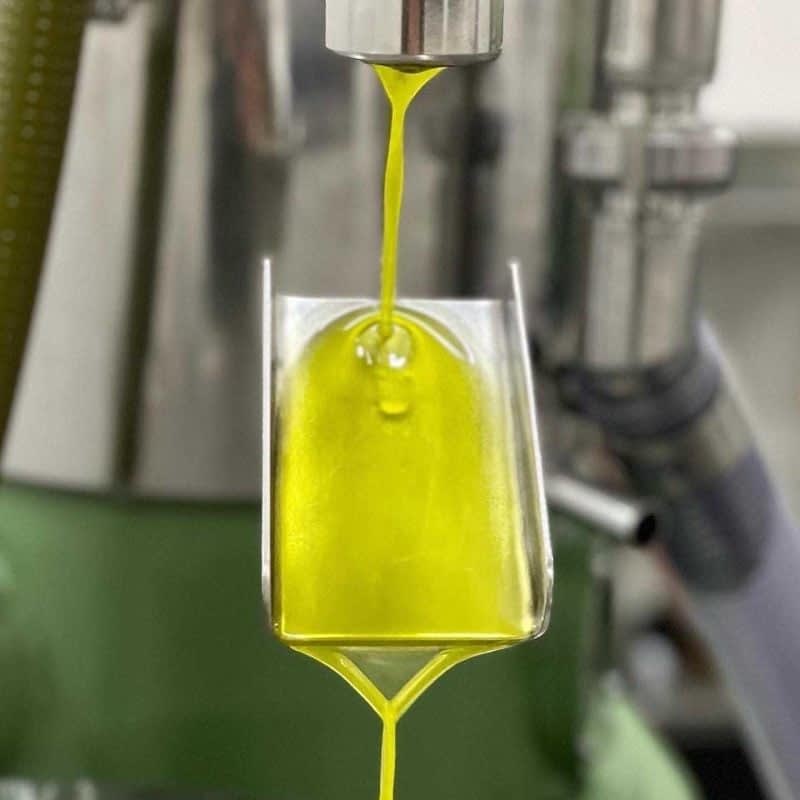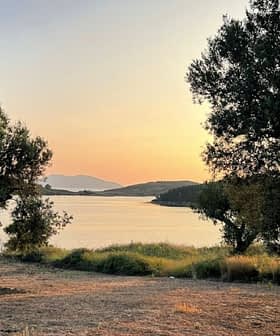Estância das Oliveiras set a new record at the 2023 NYIOOC World Olive Oil Competition, becoming the first Brazilian producer to win seven Gold Awards in a single edition of the world’s largest olive oil quality contest.
“Our objective when we began participating in global competitions was never to accumulate awards, but rather to put the extra virgin olive oil that we produce with so much care, dedication and passion to the test,” Rafael Goelzer, the company’s director of market relations, told Olive Oil Times.
We had to discover all of this with a lot of study, research and trial and error.
“[Winning these awards] demonstrates and attests to the world-class quality of our olive oils, as well as showing us that we are on the right path,” he added.
The company enters one international olive oil quality contest held on each continent annually to see how it stacks up against the global competition.
See Also:Producer Profiles“As a result, visibility through the media increases exponentially, and commercial demand follows the same pace, adding great brand and commercial results,” Goelzer said.
Located in Rio Grande do Sol, the southern Brazilian state home to the vast majority of the country’s olive oil production, Estância das Oliveiras is a family business.
Goelzer’s parents, Lucidio and Sonia, co-founded the company. Meanwhile, his brother, André, is the master miller and his other brother, Lucas, is the company’s financial director.

Lucidio Goelzer co-founded Estância das Oliveiras with his wife, Sonia.
Goelzer said Estância das Oliveiras has produced extra virgin olive oil commercially for the past five years.
The company was born from his father’s dream to produce extra virgin olive oil for his family’s consumption.
In 2004, he started studying olive cultivation and researching the potential of Viamão, a municipality in eastern Rio Grande do Sul, close to the Atlantic coastline.
At the time, the region was deemed unsuitable for olive farming, but his research and the results of his initial olive-growing venture proved the opposite. “The region soon stood out for the complexity of its oils,” Goelzer said.
Since first planting in 2004, Estância das Oliveiras has steadily increased its annual olive oil yields, inspiring the family to jump from hobby growers to commercial producers.
“It wasn’t easy at all,” Goelzer said. “We were one of the first olive oil-producing resorts in Brazil.”
At that stage, no research was available on grove maintenance, pruning or much else related to olive oil in Brazil. “We had to discover all of this with a lot of study, research and trial and error,” Goelzer said.
“Our first harvest was 11 years after the first planting,” he said. “We harvested 35 kilograms and produced 3.5 liters of olive oil. It’s work that requires a lot of resilience, innovation, learning and, above all, passion.”
Goelzer attributed this year’s extraordinary success at the NYIOOC to the passion of his family and all the other people who work in the groves and mill.
He believes the key to improving the sector is to kindle this passion in Brazilian consumers, whose appetite for extra virgin olive oil is growing but may not realize it is produced locally.
“We realized that the Brazilian consumer had little information on choosing the best olive oil,” Goelzer said. “So almost three years ago, we opened the estância for oleotourism, focusing on training consumers on choosing olive oil.”

Goelzer believes Brazilian producers can promote local olive oil culture to domestic consumers.
“We currently receive thousands of visitors every year, leaving a legacy of education for the conscious consumption of olive oil,” he added.
Along with consumer education, Goelzer said Brazilian producers face many challenges, many of which stem from the high costs of producing extra virgin olive oil.
“When we are talking about world-class olive oils, we cannot produce them without high investment and practically artisanal tree-by-tree work,” he said. “This increases production costs considerably.”
“High taxes in Brazil also have a decisive impact on the pressure of these costs,” Goelzer added. “The government could give the attention it deserves to this new economic segment and, with incentives, enhance its expansion.”
To meet these challenges, Goelzer said Brazil needs to produce more olive oil domestically and work with the public and private sectors to fight fraud.

Brazil needs to produce more extra virgin olive oil at home to meet rising demand and fight fraud, according to Goelzer.
“We have the expansion of national production; today, Brazilian olive oils meet less than 5 percent of the national demand,” he said. “In the long term, the challenge is to maintain the quality of the national product.”
Despite the challenges, Goelzer said Rio Grande do Sul has many advantages for producers. “We have a unique terroir that brings complexity to our oils,” he said.
Goelzer added that the combination of the team’s hard work and complete control of the production process has also played a significant role in their success.
This hard work begins with soil preparation before planting any trees. When the time comes, the harvest is done by hand to prevent the fruit from being damaged. “The time between harvesting and processing is only two to three hours, bringing unparalleled freshness to all our oils,” Goelzer said.
He added that the entire family is obsessed with olive oil; his father and brother constantly research new milling and agricultural practices, applying everything they learn to the groves and mill.
“Without a team of people who love what they do and are dedicated to doing their best, we would never have achieved such spectacular results,” Goelzer said. “All this allows Estância das Oliveiras to achieve so much recognition and to produce one of the best olive oils in the world.”









